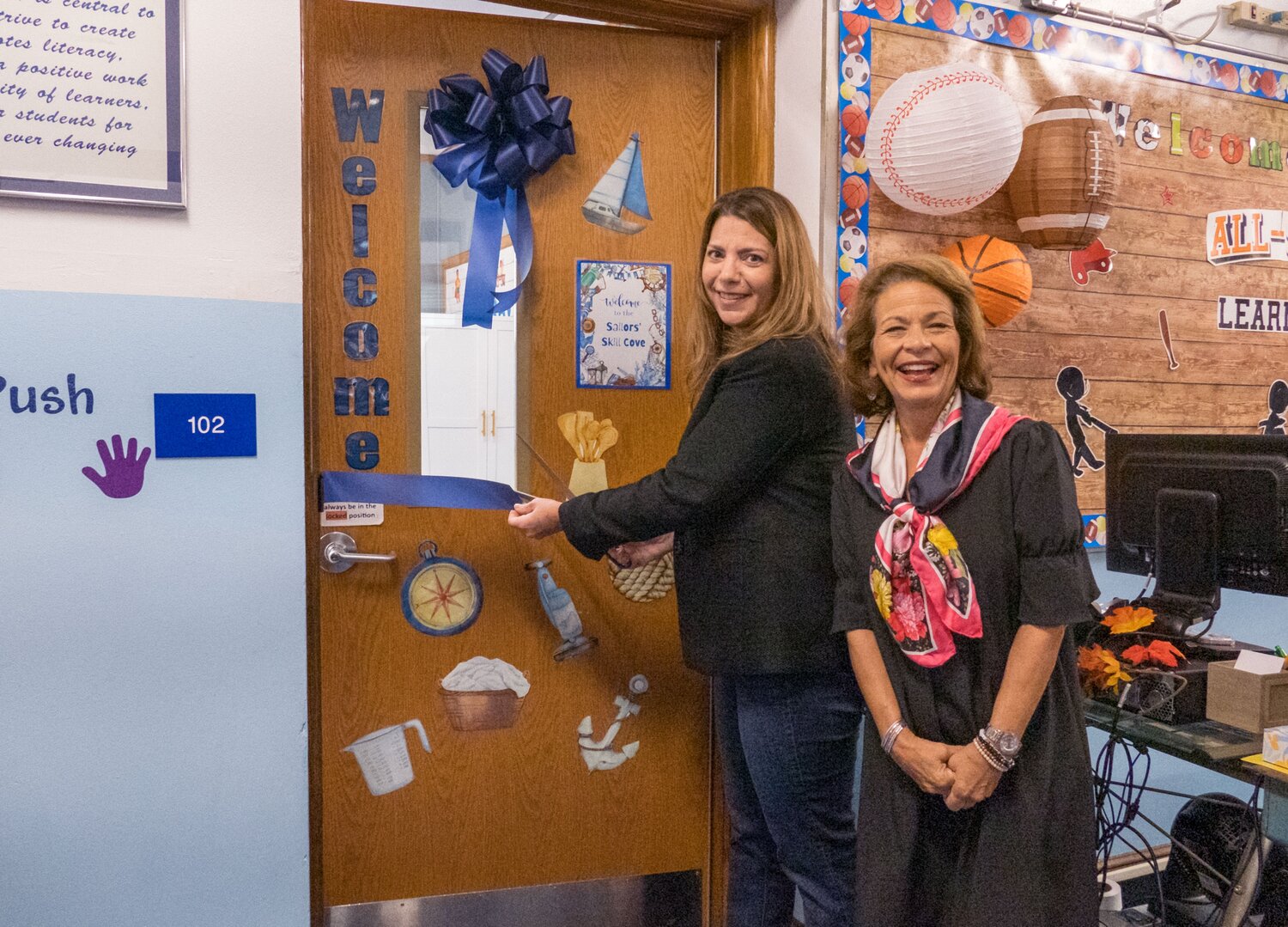Sailors’ Skill Cove a game changer in Oceanside
Oceanside School District recently marked the grand opening of a learning space at School Four that is set to redefine special education in the district.
The Sailors’ Skill Cove, a fully functional living space designed to teach essential daily living skills, was unveiled in a ribbon-cutting ceremony on Sept. 26.
The classroom, which resembles a studio apartment, includes a bedroom, kitchen, and laundry area where students can practice tasks like making a bed, folding laundry, and preparing meals.
The space will serve as a hands-on learning environment for students with special needs, equipping them with skills for independence at an early age.
The inspiration behind the project, according to Special Education Coordinator Tracy Murray, is the daily need for students to practice and master real-life tasks in a realistic environment.
“We’re preparing our students to contribute to their households and communities,” Murray said. “What better way to do that than by providing them with a place where they can practice essential skills, like doing laundry and cooking, in a controlled, supportive setting?”
The concept for Sailors’ Skill Cove began to take shape last spring, with construction officially starting in December. The idea was inspired by a similar project in the Franklin Square School District.
“We saw something like this and knew immediately that it would be incredibly beneficial for our students,” said Jaclyn Graham, Principal of School Four. “By giving students the opportunity to develop these skills at the elementary level, they are better prepared for middle school and high school, where vocational training and life skills continue to be a focus.”
Two educators, Jamie Martinez and Laura Moriarty, played pivotal roles in bringing Sailors’ Skill Cove to life and took on the task of designing the space and developing a curriculum.
The curriculum includes task-based learning, such as making a bed, setting the table, and sorting laundry. Each task is accompanied by a detailed set of instructions, and student progress will be closely monitored through data collection, enabling teachers to tailor instruction based on individual needs.
The focus on data-driven instruction is a hallmark of the district’s approach to special education.
“We are very data heavy,” Murray said. “We don’t collect data just for the sake of it. We use it to drive our instruction and ensure progress for each student. It allows us to see where adjustments need to be made in order to maximize success.”
One of the key goals of Sailors’ Skill Cove is fostering an inclusive environment.
While it is primarily designed for special education students, the space will also be used by general education students.
“We plan to schedule regular visits from our general education students so they can engage in activities alongside our special education students,” explained Murray. “This fosters an inclusive environment where all students learn and grow together, which is something we strive to achieve throughout the district.”
Students will visit the space regularly as part of their curriculum. “It’s important that they have repeated exposure to these tasks to ensure skill development,” added Graham. “This space offers them the opportunity to develop those skills in a safe, supportive environment that closely mirrors what they’ll experience at home.”
One student, Kadin, demonstrated his mastery of the skills during the ribbon-cutting, earning praise for setting the table and sorting household items into bins. His efforts showed the potential that Sailors’ Skill Cove holds for its students.
The district has long been committed to ensuring that its students are prepared for life beyond the classroom. While the middle and high schools emphasize job training, Sailors’ Skill Cove focuses on foundational life skills.
“It’s amazing to see this kind of initiative at the elementary level,” said Murray. “We’re giving our students the time they need to develop these skills. Progress might not be fast, but by starting early, we’re ensuring they have the best possible chance to live independently as adults.”







